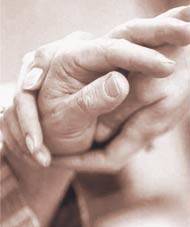Fear of Being Romanian in Rome
In 2004, the year of my mamma’s death, my brother and I decided to find a person who could take care of our old father, living with him full time, assisting him, keeping him company when we cannot. It is more than three years now that Daniela, a 45 year old woman from Romania, has become a part of our family. She decided to come to Italy because, after the fall of Communism in Eastern Europe, she lost her job in a factory as an electrician. It was a necessary step to support her husband, still working but earning a lesser income, and her two children. Daniela is very proud both of her 25 years old daughter who is an oncologist, and her son who has just started university. This is why Daniela needs to work, even if she misses her family very much. We often talk about the racism of Italians and many times she expressed her disappointment at their tendency in thinking all of the Romanians as “gypsies” or thieves. The death of Giovanna Reggiani has created in her a deep fear. I asked about her feelings and about her family’s attitude.
“They are in Bucharest – she explains – they are far and especially during the days of Giovanna’s agony the news arriving there was rather confusing, making them worried. The news on television was entirely focused on this event, so they were scared of a reaction by Italians against Romanians. After some days this reaction happened”. Daniela has a day off every Sunday, when she meets her friends from Romania and her sister, working in Rome as well. I ask her what the atmosphere in the Romanian community is. “There is a great sadness for the death of that woman, but there is also rage, because that man who was arrested does not represent me, my family, the best part of Romanians. He is a gypsy, and gypsies are a problem in Romania too. During the Communist regime, the gypsies and anyone who was unemployed were arrested and put to work in prison, mainly hard labor such as working in the mines. After the fall of Ceausescu’s government everything changed in my country and in all those countries closely connected to Moscow. It started an economic crisis, unemployment, and a lot of people had to migrate in order to find a job abroad.
The gypsies started to commit crimes and, to avoid going to jail, decided to come to Italy”. Such a statement requires an explanation regarding the choice of Italy over any other European country. “Well, I told you already that the main fault is yours. The Italian laws, in fact, are very permissive, you give the possibility to be released from prison in a short time, no matter what you have done. Some time ago a Romanian man was arrested while he was driving drunk and killed four adolescents. I cannot remember where it happened [edr: in the Marche region]. Well, after few days in prison this person was released and placed under house arrest. He is now living in a residence in front of the beach, and the media are showing photos of him while he is sunbathing. And the families of the adolescents who died are furious against the Romanians. This is absurd: it is not the fault of the Romanians; it is the fault of your laws. If it had happened in my country or in another European nation, that drunk driver would have been sentenced to a more serious punishment. This is why these criminals choose Italy. And, remember, the criminals are not only from Romania!” While Daniela is talking about this subject she gesticulates showing her disappointment. Then she gives an example to clarify her opinion: “In Romania, if you steal a bicycle, you are sentenced to four years in prison. Here in Italy you are released immediately. So, it is absurd to be against us. You should be against those who do not enforce the laws!”
I ask her what has changed after the death of Giovanna Reggiani: “Of course I am scared. Last Sunday on the bus my sister, my friends and I avoided talking. We were afraid to show our nationality. We are afraid that some people could harm us just because we are from Romania”.
In the meantime, in Rome the episodes of xenophobia are increasing. After the attack on three Romanians, just after the death of Giovanna Reggiani, in the night between the 4th and the 5th of November, in Monterotondo, a village not far from Rome, a rudimentary bomb exploded in front of a grocer’s selling products coming from Eastern Europe. Luckily, no one was injured. On the wall on the side of the grocer’s door a black Celtic cross and a threat in slang are visible: “Ve bucamo la testa” (edr: we’ll put a hole in your head). In Rome, while riding the subway, a young Romanian home helper was spat on and insulted after having talked on the phone with her husband in their language. These are just a few episodes, but hour after hour Italy and the city of Rome risk becoming dominated by the beast of xenophobia: the real enemy.


































i-Italy
Facebook
Google+
This work may not be reproduced, in whole or in part, without prior written permission.
Questo lavoro non può essere riprodotto, in tutto o in parte, senza permesso scritto.